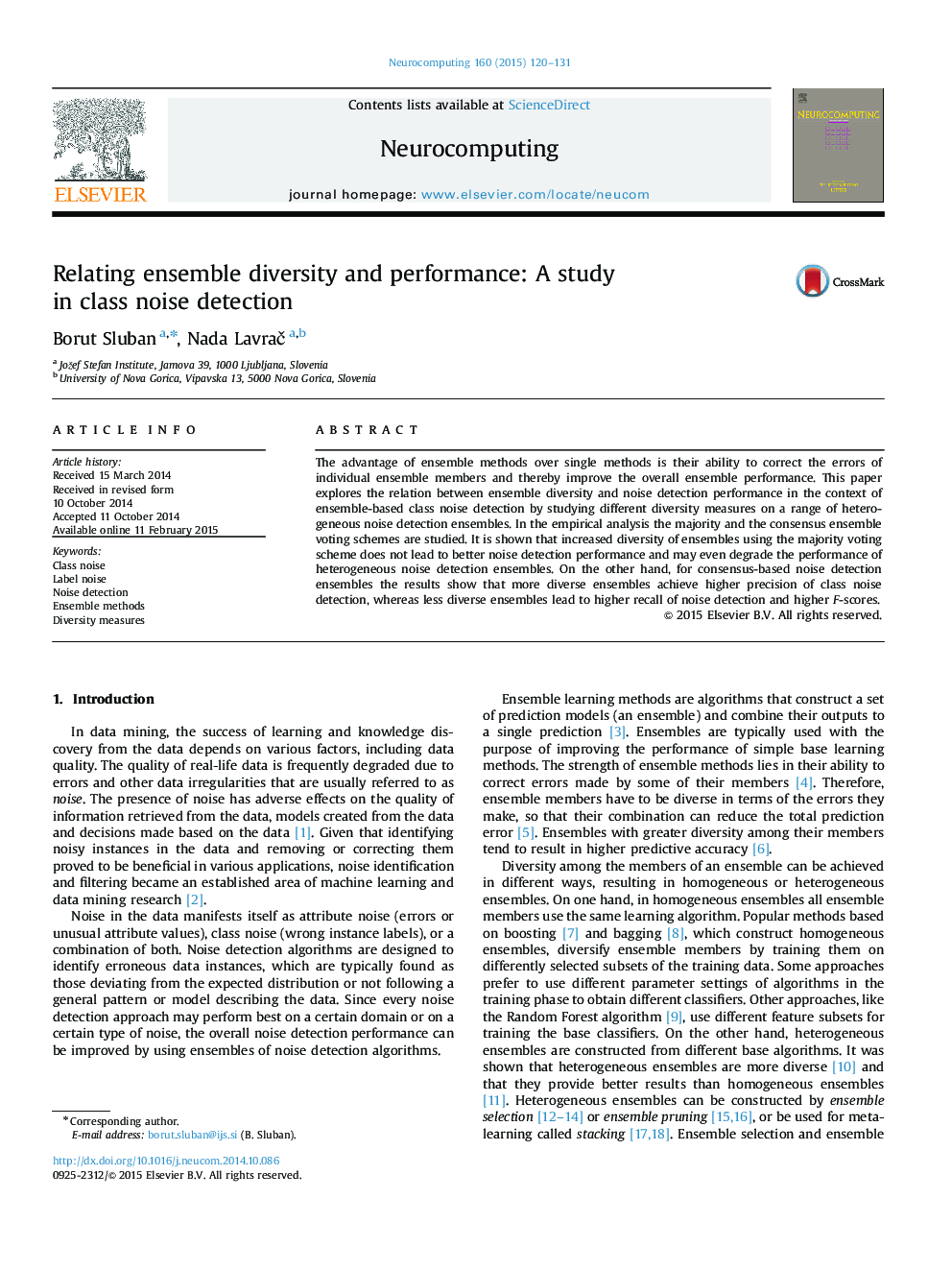| Article ID | Journal | Published Year | Pages | File Type |
|---|---|---|---|---|
| 406203 | Neurocomputing | 2015 | 12 Pages |
The advantage of ensemble methods over single methods is their ability to correct the errors of individual ensemble members and thereby improve the overall ensemble performance. This paper explores the relation between ensemble diversity and noise detection performance in the context of ensemble-based class noise detection by studying different diversity measures on a range of heterogeneous noise detection ensembles. In the empirical analysis the majority and the consensus ensemble voting schemes are studied. It is shown that increased diversity of ensembles using the majority voting scheme does not lead to better noise detection performance and may even degrade the performance of heterogeneous noise detection ensembles. On the other hand, for consensus-based noise detection ensembles the results show that more diverse ensembles achieve higher precision of class noise detection, whereas less diverse ensembles lead to higher recall of noise detection and higher F-scores.
